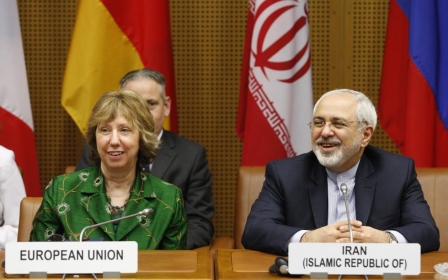Iran pledges 'redesign' of controversial Arak nuclear reactor
Iran has proposed that its Arak research reactor could be redesigned, potentially removing an issue seen as a major stumbling block towards a “final deal” on the country’s nuclear programme.
Speaking to Iran’s state-run Press TV, Head of the Atomic Energy Organization of Iran (AEOI) Ali Akbar Salehi said on Thursday that it would be possible to significantly lower plutonium production at Arak.
The uncompleted plant has become a central issue in ongoing negotiations between Iran and six major world powers heading the nuclear talks, as the latter had claimed that it could be used to produce weapons-grade plutonium. The most recent round of these negotiations ended in Vienna on Wednesday, with the next round scheduled for May.
“In our plan, we explained that we would redesign the heart of the Arak reactor, so that its production of plutonium will decrease drastically. They [Iran's negotiating partners] were surprised when they saw our scientific and logical reaction,” Salehi told Press TV.
The P5+1 powers - the United States, China, Russia, Britain, France and Germany - had said that Arak could be altered to a Light Water Reactor which presents less of a proliferation risk, following warnings by senior Iranian negotiators that closing the plant was not on the agenda.
Salehi also commented on Iran’s relations with the International Atomic Energy Agency, saying that Tehran had satisfied over their technical questions regarding nuclear issues.
Tehran agreed under the so-called “Geneva Deal” reached last November to halt the processing of uranium to 20 percent enrichment and convert its present stockpile of nuclear fuel so that it couldn’t be processed further. An IAEA report released in February found this process was on track.
Iranian Foreign Minister Javad Zarif said the two sides were up to 60 percent in agreement after the latest talks in Vienna. Meanwhile, supreme leader Ayatollah Ali Khamenei struck a defiant yet supportive tone yesterday in remarks published online.
"Talks should continue," Khamenei said in comments posted on his website Khamenei.ir. However, he added, “everyone should know that Iran's activities in nuclear research and development, as well as its nuclear achievements, will never be stopped".
These statements were echoed by AEOI spokesman Behrouz Kamalvandi on Wednesday. "Research and Development is Iran's legitimate right and should be observed without any limits," he told Fars News.
Middle East Eye propose une couverture et une analyse indépendantes et incomparables du Moyen-Orient, de l’Afrique du Nord et d’autres régions du monde. Pour en savoir plus sur la reprise de ce contenu et les frais qui s’appliquent, veuillez remplir ce formulaire [en anglais]. Pour en savoir plus sur MEE, cliquez ici [en anglais].


